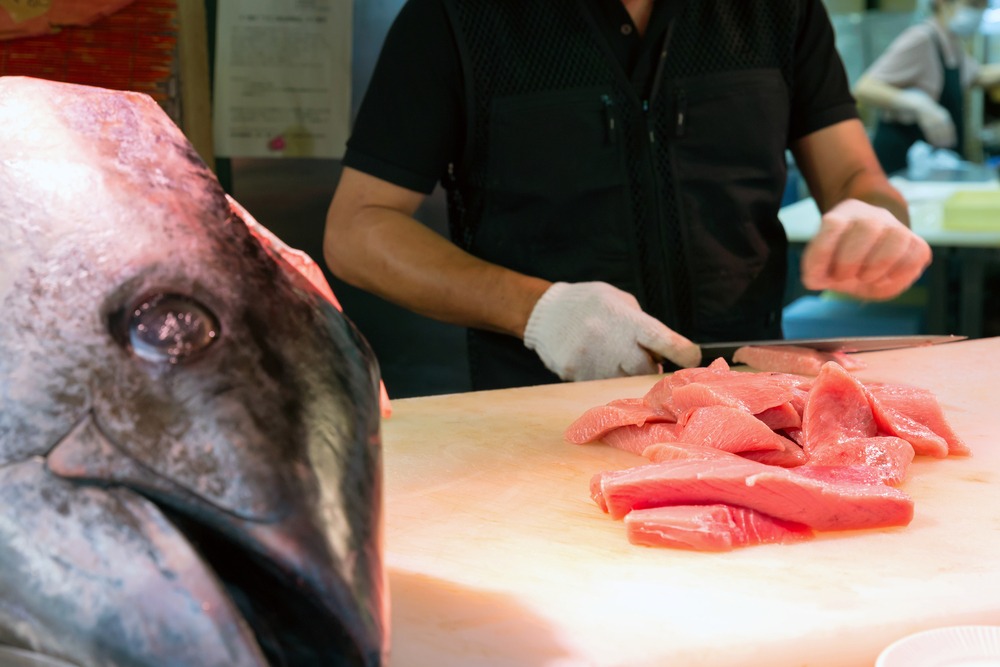Finless Foods, a San Francisco-based startup working on culturing tuna using cellular agriculture, has closed a $3.5 million seed round led by California tech VC Draper Associates.
Finless is one of a growing group of startups attempting to culture animal cells in a lab setting in order to create a meat or fish product that does not require the killing of animals — the process is called cellular agriculture. Finless claims to have made the first cultured fish cakes to be eaten last year.
Investing in the round alongside Draper are New York’s Softmatter VC, Florida-based Starlight, Italy’s The U-Start Club, Blue Horizon in Switzerland, Seattle-based Hemisphere Ventures, Babel Ventures in San Francisco, Japan’s Yakumi Investment, Olive Tree Capital in San Francisco, and Harrison Blue Ventures in New York.
This round will allow Finless to finish its R&D work and move onto commercial scale pending raising a Series A round in 2019, with a product on the market near the end of next year.
Specifically, Finless is focused on culturing higher-end species of fish like salmon and bluefin tuna. Founder and CEO Mike Selden told AgFunderNews that bluefin is the aim for several reasons; the fish is on and off the protected species list for one.
“It can’t be farmed efficiently yet so there’s no sustainable way to produce it,” said Selden. Plus, as the amount of plastic rises in the oceans, predator fish like tuna become more likely to contain high levels of plastic along with the high levels of mercury that have been a concern for years.
There is also a large market for bluefin tuna in forms other than a whole filet or a sliced version, which is a plus for Finless as when using cellular agriculture, it is much easier to create a product with the texture of ground meat, than one resembling a fresh steak. These foods include popular Japanese ingredient negitoro, a fish paste made from bluefin, and the scraps used to create spicy bluefin sushi rolls, also popular in the US. These offer Finless quicker routes to market than an attempt at sashimi or whole filets.
Selden’s goal is to sell his catch-less tuna for substantially less than market price for these items — a goal he feels comfortable with since bluefin tune wholesales for around $100-$200 per pound.
The CEO said that when it came to investors, his company, and the others in the cellular agriculture space, have more incoming interest then they can possibly field. For this round, he looked for investors that could fill specific roles and come with specific knowledge of subjects like high-end luxury retail, Japanese regulatory systems, and food science.
“This industry is really hot right now and we’ve been very lucky to get a lot of attention. Every single one of these investors we picked out of the fray. We picked the people that we thought worked best with our team and those that had the resources to get us where we need to go,” said Selden.
Regarding lead investor Draper, Selden said, “They have a lot of experience building large businesses. We want more help on the venture capital side to know what it’s like to build a large VC-backed organization.”
“We are well aware that Finless will be in an R&D phase for a while longer, both on scaling the fish medium and nailing the texture and taste of the product — but the progress they’ve made, the team they’ve built, and the problem they’re going after are all pointing in the right direction,” wrote Draper Associates general partner Billy Draper announcing the round.
Finless’s latest investor list lacks dedicated food and agriculture investors, which Selden says is somewhat by design.
“People in the food space don’t know how to tie food to venture-backing. They understand private equity or working with large corporations, and so we wanted a range of expertise.”
Previous investors in Finless include Hatch, the aquaculture accelerator based in Norway and Italian ingredients company Hi-Food. The startup also when through the Indie.Bio accelerator in 2017.
On top of hosting a tasting of culture fish cakes earlier this year, Selden said that technology at Finless is progressing and the company will be able to grow fish cells without serum, the previously necessary substance that must be harvested from an animal. All cultured meat startups are working to solve the necessity for serum, since it does keep the end product from being completely slaughter free. They are doing so in various ways such as creating synthetic equivalents and “training” their cell lines to grow without it. Finless is using both techniques.
Selden said that as cultured meat grows as an industry, two types of startups are emerging — those that seek to get a product to market as soon as possible, and those that aim to develop superior capabilities in one particular area of the cellular agriculture process, with the aim of eventually selling capabilities and services to other cultured meat companies. Selden is emphatically in the group attempting to get to market first.





